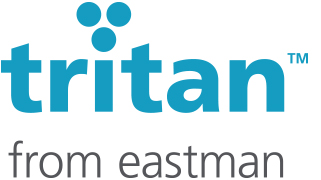

Transparency is important to us
In response to market demand for a safe alternative to clear plastics, many brand owners and manufacturers are looking to Tritan or Tritan Renew as a polycarbonate replacement. To increase customer confidence in the decision to use Tritan, Eastman has rigorously analyzed these innovative polymers — and makes the test results available to everyone.
Tritan is free of BPA and BPS.
Most importantly, no bisphenol A (BPA) or bisphenol S (BPS) have ever been used as a raw material in the making of Tritan, nor are they formed as byproducts in the manufacturing process. Robust internal testing and independent third-party testing by accredited laboratories support these findings.
Tritan is phthalate free.
Tritan and Tritan Renew are free of ortho-phthalate plasticizers. Often simply called “phthalates,” this group of plasticizers — including DEHA and DEHP — is used to make PVC and other plastic materials soft and flexible. These materials are quite different from hard plastics like Tritan and Tritan Renew, whose performance does not require ortho-phthalates.
Tritan is not required to be on the Prop 65 list.
California Proposition 65 requires that a warning label be provided to employees, manufacturers and consumers in the state when they are exposed to chemicals that may cause cancer or reproductive harm. Currently, more than 800 chemicals require this warning label, but Tritan and Tritan Renew are not among them.
Tritan is Indoor Air Quality Certified
Tritan is GREENGUARD Indoor Air Quality Certified®.1 In addition, Eastman is a Responsible Care® company and is committed to using creativity and technical expertise to provide sustainable solutions.2
1The GREENGUARD Indoor Air Quality Certified® Mark is a registered certification mark used under license through the GREENGUARD Environmental Institute (GEI).
2Responsible Care® is a registered service mark of the American Chemistry Council.






